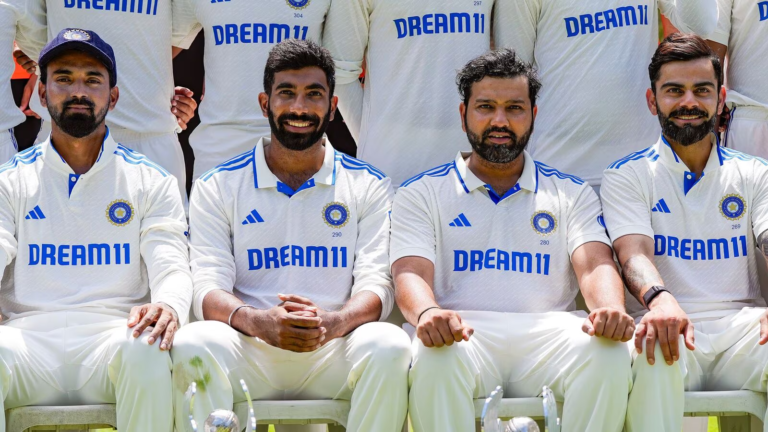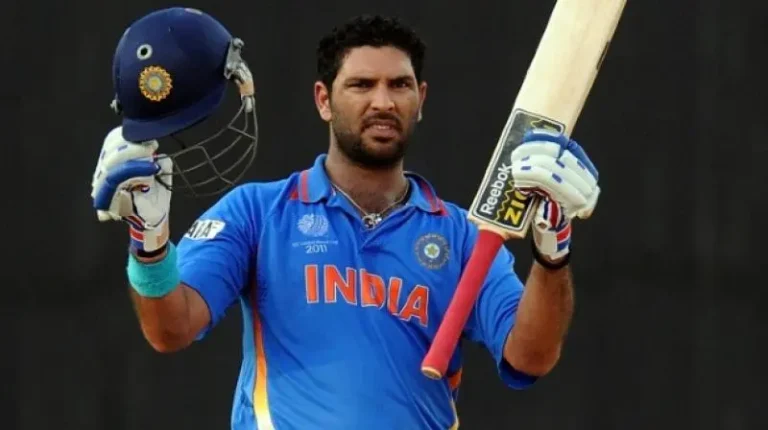Introduction to Cricket Gear
Cricket gear encompasses a wide range of equipment designed to facilitate gameplay and protect players from potential injuries. Understanding the significance of each piece of cricket gear guide is crucial for both seasoned cricketers and beginners alike.
Choosing the Right Cricket Bat
Your cricket bat is your ultimate weapon on the field. Opt for a bat that feels comfortable in your hands and suits your playing style. Consider factors like weight, grip, and blade size. Whether you prefer a traditional willow bat or a modern composite one, ensure it complies with cricket regulations.
Understanding Cricket Balls
The cricket ball is the centerpiece of the game. Choose between red and white balls, depending on the format you’re playing. Red balls are typically used in traditional test matches, while white balls are favored in limited-overs formats like One Day Internationals (ODIs) and Twenty20 (T20) cricket. Pay attention to the ball’s construction and seam for optimal performance.
Essential Protective Gear
Safety should be your top priority on the cricket field. Invest in high-quality protective gear, including a helmet, pads, and a box for male players. Ensure these items fit snugly and provide adequate protection against fast-paced deliveries. Read carefully cricket gear guide before purchasing it.
Quality Cricket Footwear
The right pair of cricket shoes can significantly enhance your performance and prevent injuries. Look for shoes with proper ankle support, traction, and comfort. Whether you prefer spikes or rubber studs, choose a pair that suits the playing surface and your playing style.
Cricket Clothing Essentials
Comfort and flexibility are key when it comes to cricket clothing. Opt for lightweight, breathable fabrics that allow for unrestricted movement. Your attire should include a cricket shirt, trousers, and appropriate undergarments. Consider moisture-wicking materials to keep sweat at bay during intense matches.
Optimal Cricket Gloves
A good pair of cricket gloves can provide the grip and protection you need to excel on the field. Choose gloves with reinforced padding in the palms and fingers to absorb shock from ball impact. Ensure a snug fit to maintain dexterity and control while batting and fielding.
Importance of Wicket-keeping Gear
Wicket-keeping is a specialized position that requires specific equipment. Invest in quality wicket-keeping gloves, pads, and a helmet with a face guard. These items are essential for protecting against fast-paced deliveries and ensuring your safety behind the stumps.
Necessary Cricket Accessories
Beyond the basics, several accessories can enhance your cricketing experience. Consider investing in items like sweatbands, sunglasses, and grip applicators to improve comfort and performance on the field. Additionally, a cricket scorebook and umpire accessories can come in handy for scoring and officiating matches. Cricket gear guide focus on importance of these accessories to help you.
Selecting the Perfect Cricket Bag
A reliable cricket bag is essential for transporting and organizing your gear. Look for a spacious, durable bag with multiple compartments to store your bat, pads, helmet, and other essentials. Consider features like padded straps and waterproof material for added convenience and protection.
1. Batting Equipment
Cricket Bat
The cricket bat is arguably the most iconic piece of equipment in the sport. Available in various sizes and shapes, cricket bats are crafted from high-quality wood, such as English willow or Kashmir willow, to provide power and precision to a batsman’s strokes.
Batting Gloves
Batting gloves are essential for protecting a batsman’s hands from impact and reducing the risk of blisters and injuries. Modern batting gloves feature padded palms and flexible fingers to provide comfort and grip while batting.
Batting Pads
Batting pads, also known as leg guards or shin guards, shield a batsman’s legs from fast-moving cricket balls. These pads are typically made from lightweight materials and offer ample protection without restricting mobility.
2. Protective Gear
Helmet
A cricket helmet is a critical piece of protective gear that safeguards a player’s head from potential impact injuries, particularly when facing fast bowlers. Helmets come in various designs, including those with full-face protection or visors, to suit individual preferences.
Abdominal Guard
Also known as a box or a cup, an abdominal guard provides vital protection to a batsman’s groin area. This essential piece of gear minimizes the risk of serious injury when facing fast bowling or fielding close to the bat.
Thigh Guard
Thigh guards are worn by batsmen to protect the upper thighs from impact injuries. These guards are typically strapped around the waist and offer additional padding to absorb shock from cricket balls.
3. Wicket equipment
Wicket gloves
Wicket-keeping gloves are specially designed to provide grip and dexterity to wicketkeepers when catching the ball. These gloves feature reinforced padding and webbing between the thumb and index finger to enhance catching ability.
Wicket pads
Similar to batting pads, wicket-keeping pads offer protection to a wicketkeeper’s legs while crouching behind the stumps. These pads are lightweight and flexible to allow for quick movements and agility.
4. Bowling Equipment
Cricket Ball
The cricket ball is the primary tool used by bowlers to deliver deliveries to batsmen. Cricket balls come in various colors and materials, with red leather balls commonly used in traditional formats and white balls used in limited-overs cricket.
Bowling Shoes
Bowling shoes are designed to provide traction and stability to bowlers during their run-up and delivery stride. These shoes feature spikes or cleats on the sole to prevent slipping on grass or turf surfaces.
5. Fielding Gear
Fielding Gloves
Fielding gloves, also known as inner gloves or inners, are worn underneath fielders’ regular gloves to provide additional grip and protection. These gloves absorb sweat and reduce friction, allowing fielders to maintain a secure hold on the ball.
Fielding Pads
Fielding pads are optional accessories worn by fielders to protect their knees while diving or sliding on the field. These pads are lightweight and flexible to ensure freedom of movement without hindering performance.
6. Clothing and Accessories
Cricket Whites
Traditional cricket attire consists of white clothing, including a shirt, trousers, and sometimes a sweater or jumper for colder weather. However, modern cricket apparel now includes colorful jerseys and performance-enhancing fabrics for improved comfort and mobility.
Cricket Bag
A cricket bag is essential for storing and transporting all of your cricket gear to and from matches and training sessions. These bags come in various sizes and designs, with compartments for bats, pads, helmets, and other accessories.
7. Maintenance and Care
Cleaning and Storage
Proper maintenance of cricket gear is essential to prolong its lifespan and performance. Regular cleaning and storage in a dry, well-ventilated area help prevent mold, mildew, and deterioration of materials.
8. Additional Accessories
Sunglasses
Sunglasses are not only a fashion statement but also a practical accessory for cricketers, especially when playing in bright sunlight. Polarized lenses reduce glare and improve visibility, enhancing performance on the field.
Grip Tape
Grip tape, also known as bat tape or handle grip, provides cricketers with a secure grip on their bat handle. Applying grip tape correctly helps prevent the bat from slipping out of your hands during powerful strokes.
Maintaining Your Cricket Gear
Proper maintenance is crucial to prolonging the lifespan of your cricket gear. Regularly clean and inspect your equipment for signs of wear and tear. Store your gear in a cool, dry place away from direct sunlight to prevent damage. Replace any worn-out or damaged items promptly to ensure optimal performance and safety. Follow Cricket gear guide to maintain you gears.
Common Mistakes to Avoid
Buying Oversized Gear
Avoid purchasing oversized gear that hinders your mobility and performance on the field. Always opt for gear that fits comfortably and provides ample protection.
Neglecting Proper Care
Neglecting proper care and maintenance can significantly reduce the lifespan of your cricket gear. Take the time to clean and store your gear properly after each use.
Where to Buy Cricket Gear
Local Sporting Goods Stores
Many local sporting goods stores offer a wide selection of cricket gear and accessories. Visit your nearest store to try out different equipment and get expert advice from staff.
Online Retailers
Online retailers provide convenient access to a vast range of cricket gear from the comfort of your home. Compare prices and read reviews before making a purchase to ensure quality and reliability.
Budget Considerations
Balancing Quality and Cost
When purchasing cricket gear, strike a balance between quality and cost. Invest in high-quality gear that offers durability and performance without breaking the bank.
Tips for Beginners
Seek Advice from Experienced Players
If you’re new to cricket, seek advice from experienced players and coaches to help you choose the right gear and improve your skills on the field.
Start with Essential Gear
Start with essential gear such as a bat, ball, helmet, and pads before investing in additional accessories. Focus on mastering the basics before upgrading to more specialized equipment
Conclusion
In conclusion, investing in quality cricket gear is essential for every cricketer, regardless of their skill level or experience. From bats and helmets to gloves and pads, each piece of equipment plays a vital role in enhancing performance and ensuring safety on the field. Cricket gear guide plays a crucial role in maintaining, enhancing performance and ensuring player safety on the field. By choosing the right equipment and maintaining it properly, cricketers can enjoy a fulfilling and enjoyable experience on the cricket pitch.
FAQs
1. What should I consider when choosing a cricket bat?
When selecting a cricket bat, consider factors like weight, grip, blade size, and compliance with cricket regulations.
2. Are white cricket balls used in all limited-over formats?
Yes, white cricket balls are predominantly used in limited-overs formats like ODIs and T20 cricket for better visibility under floodlights.
3. Why is protective gear important in cricket?
Protective gear, including helmets, pads, and gloves, is essential in cricket to safeguard players against potential injuries from fast-paced deliveries.
4. How do I maintain my cricket gear?
To maintain your cricket gear, regularly clean and inspect it for wear and tear, store it in a cool, dry place, and promptly replace any damaged items.
5. What accessories can enhance my cricket experience?
Accessories like sweatbands, sunglasses, and grip applicators can improve comfort and performance on the cricket field.

Utpal is a journalist covering online and offline sports in India. He has passion for everything sports and is a regular at various sports events. Follow him to stay abreast of all things sports.







